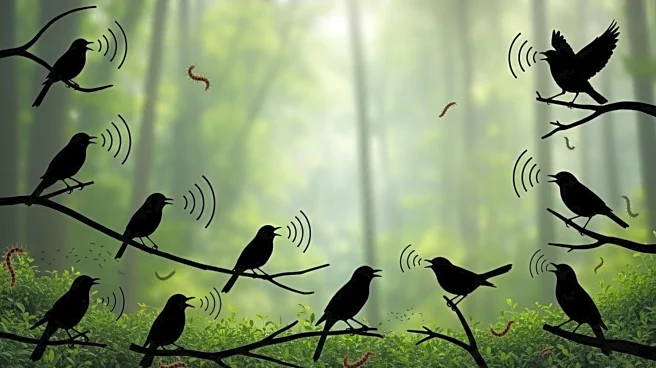What's Happening?
A study published in Nature Ecology and Evolution reveals that birds across the globe share a similar vocal warning call to alert against parasitic threats. Researchers from Cornell University and Donana Biological Station found that over 20 bird species produce nearly identical 'whining' calls when detecting brood parasites, such as cuckoos. This vocalization is learned from an innate response and is shared across species separated by vast distances and evolutionary time. The study provides insights into how natural selection influences vocal communication systems in animals.
Why It's Important?
The findings challenge traditional views on animal communication by showing a blend of learned and innate vocalizations, suggesting a potential evolutionary pathway for complex communication systems. This discovery could reshape understanding of how communication evolves in the animal kingdom, offering parallels to human language development. The study also highlights the role of environmental pressures, such as brood parasitism, in shaping cooperative behaviors and communication strategies among species, which could have broader implications for understanding ecological interactions and evolutionary biology.
Beyond the Headlines
The study's implications extend to the fields of linguistics and cognitive science, as it provides a model for studying the evolution of communication. By demonstrating a shared vocalization across species, the research suggests that complex communication systems may evolve through the integration of instinctive and learned elements. This could inform future studies on the origins of human language and the cognitive processes underlying communication in animals.









